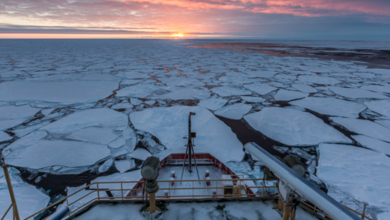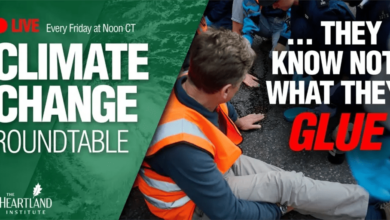John Constable’s talk at Univerdidad de las Hespérides • Watts Up With That?

By Andy May
h/t Wim Röst
The Univerdidad de las Hespérides is in the Canary Islands, off the coast of Morocco. The Hespérides are the nymphs of the evening and golden sunsets, so I imagine it is a beautiful location to travel to. Dr. Constable’s talk can be viewed in full here. The beginning is in Spanish, but they turn to English about 4 minutes in.
His talk is about our energy economy and how it has evolved over time. He makes the critical point that fossil fuels are a very high-quality energy source and have produced a very wealthy and high productivity world. As a result, the medieval hold that landowners had over the peasants of a feudal society was broken. Land ownership in the past controlled the food supply, since travel and food transport were prohibitively expensive and time consuming. Controlling food meant the landowners (lords and kings) controlled, and basically enslaved, the general population.
Fossil fuels broke that control and built our modern free societies. Previously, primary occupations, basically farming and mineral extraction, dominated employment. Tertiary occupations, like scientists, medical doctors, shop keepers; and secondary occupations like manufacturing and construction; were very small in 1600 but dominated employment in 1850. Why? Fossil fuels, especially coal.
During the industrial revolution, the use of coal grew rapidly, but the economy grew even faster. Coal was only a seed to that economic growth. Constable found that coal worked to insulate England from catastrophes, like bad harvest years, as it allowed for rapid and cheap transport of food. It created the English middle class between 1840 and 1890, a period when average household wealth quadrupled. Coal was a great equalizer of wealth, it brought it to many, many more people. The population of the English wealthy grew four times faster than population growth as a whole. From 1840 to 1885 crime decreased tremendously (70%).
Fossil fuels are a high-quality fuel. What happens if they are replaced with low quality (much lower density and lower value-add) renewable fuels, like wind and solar? The ratio of the non-energy economy to the energy sector reduces, as shown in the figure below.

What figure 1 says is that, relative to fossil fuels, the energy gained from wind and solar is much less than the energy required to build and operate the wind and solar facilities. Wind and solar are lower energy gain, and more expensive per unit of energy output. This means the rest of the economy must shrink.
Indeed, Constable mentions that there is a hinge point in the U.S. and other western economies in 2005 when it started to emphasize renewable energy. After 2005 U.S., Spanish, U.K., and EU energy consumption flatlined or has fallen. This is quite alarming because since overall energy consumption has fallen, energy consumption in all private sectors has fallen. Only the less productive public sector energy consumption has increased, think jetting to climate conferences.
In China, industrial energy growth is rapid, feeding their overall growth. In the U.S. it is the opposite, suggesting an overall economic decline. Dr. Constable believes that the West is conducting a very dangerous experiment. What will happen if energy consumption in the West declines and energy becomes much more expensive overall? Energy is the feedstock of wealth and prosperity, if its use declines, so will wealth and prosperity. He believes we are on a very dangerous road to travel.
This is a very thoughtful and important talk. I highly recommend watching it in full.
Dr. John Constable is the Energy director for the GWPF. He is the author of Europe’s Green Experiment, A Costly Failure.




